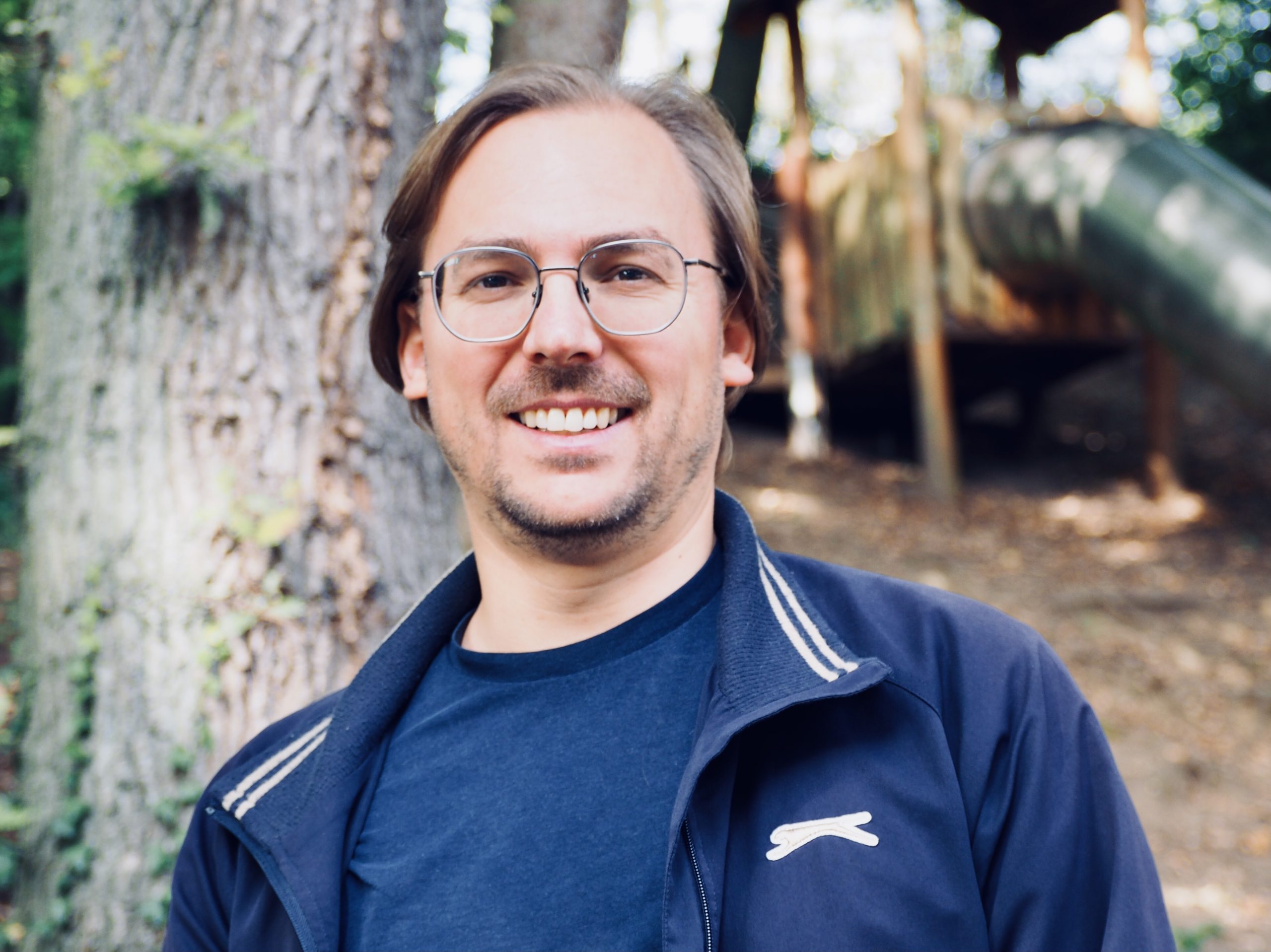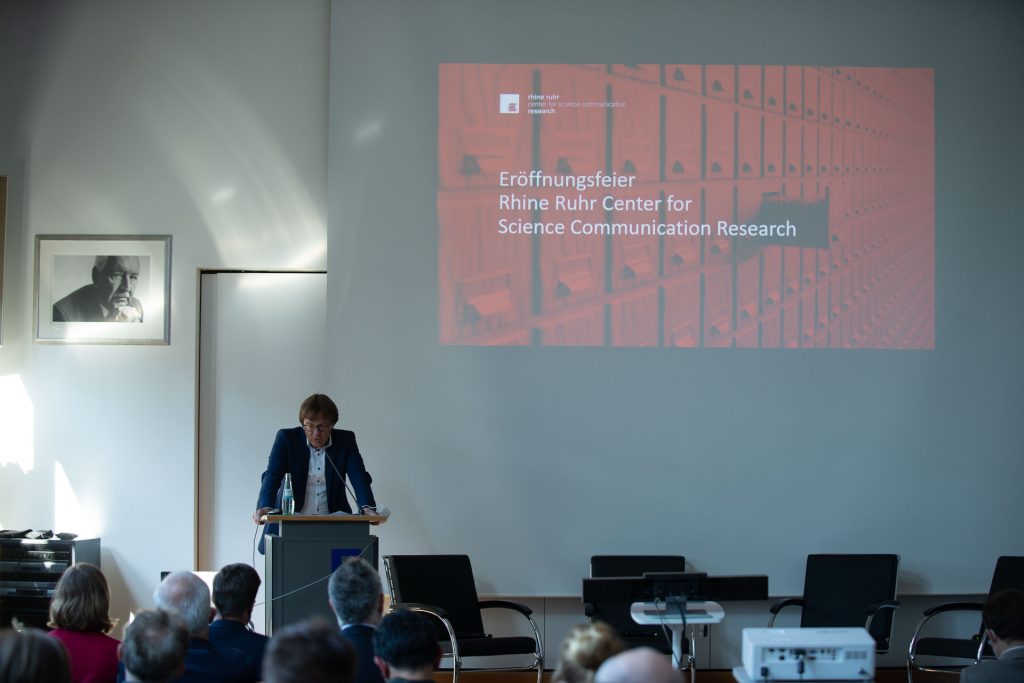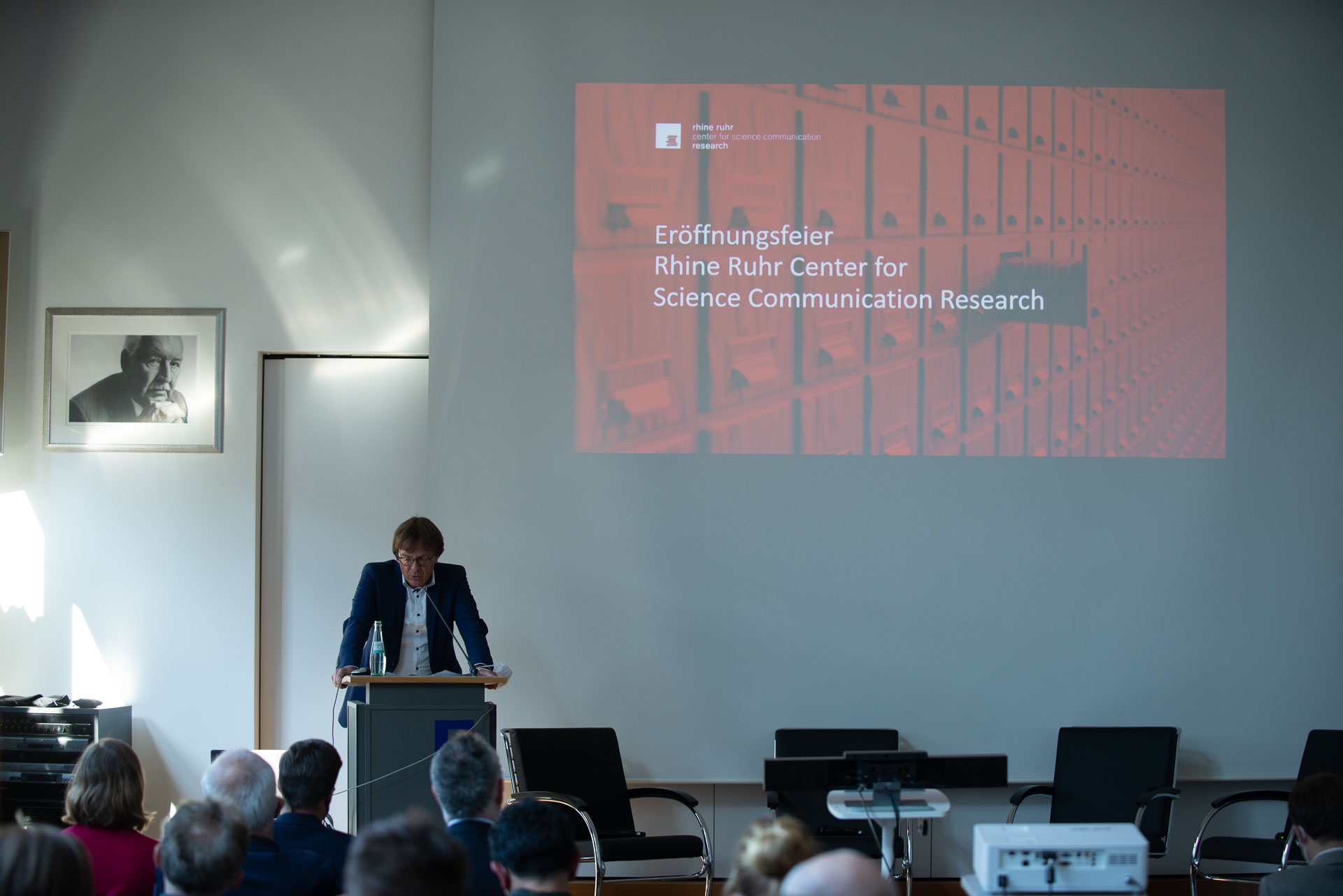How can science communication be practiced under post-truth conditions? And what role do the humanities and social sciences play in this context? The Rhine Ruhr Center for Science Communication Research (RRC) is devoted to answering these and other pressing questions. The center is funded by a generous grant from the Volkswagen Foundation and headed by Julika Griem of the Kulturwissenschaftliches Institut Essen (KWI), David Kaldewey of the Forum Internationale Wissenschaft (FIW) at the University of Bonn, Holger Wormer of the TU Dortmund, Oliver Ruf of the University of Applied Sciences Bonn-Rhine-Sieg as well as Volker Stollorz of the Science Media Center in Cologne and Franco Zotta of the German Science Journalists’ Association.
The RRC is devoted to science communication with a special focus on the humanities and social sciences. As such, it addresses highly important questions about how insights from the reflexive social and cultural research on science might be communicated. Natural scientists usually attract attention via stimulating images of ground-breaking discoveries. Not so the reflexive sciences on science. Thus, there are elementary questions that need to be answered about the communicability of insights from social and cultural research on science. Next to this, RRC aims to, over the course of its initial five-year funding, bring its findings closer to practicing journalists as well as to students in interdisciplinary workshops and conferences. On June 2, 2022, the RRC officially opened with a celebratory inauguration at the Erich-Brost-Institute at TU Dortmund. Together with our director Stefan Böschen I ventured to Dortmund to attend the event, at which we met with many familiar faces from science studies and journalism.

Phillip H. Roth
Phillip is postdoc and the events coordinator at c:o/re. Among other topics, his research is dedicated to questions of identity work in biomedical disciplines, to the meaning of medicine and the role of patient advocacy on the internet as well as to social and cultural conditions of scientific modeling. In a current project, he is trying to develop a sociology of pandemics for the digital age that draws on communication theories of virality and contagion.
After welcoming words by Holger Wormer, the inauguration consisted of a brief overview of the RRC’s three main research projects, given by Julika Griem, as well as three panel discussions, each moderated by one of the RRC’s heads. The panels were devoted to core problem areas of the RRC, making up most the of the formal part of the evening. In the first, moderated by Oliver Ruf, Julia Schubert (University of Speyer) discussed with local students about “Science Communication in Times of Multiple Facts”. One of the core take-aways of this insightful discussion was that the students desired the humanities and social sciences to be more present in public science communication. They stressed particularly that they promised themselves that these fields would be better equipped than natural or engineering sciences to deal with the problems of post-truth in current debates. The second panel, moderated by David Kaldewey, consisted of a dialogue between science journalist Birgit Herden (Die Welt) and the sociologist of science and technology Cornelius Schubert (TU Dortmund) about “Images and Imaginations of Science”. They reflected on how journalism and sociology address different audiences. Variety of audiences necessarily also leads to conflicts between the trajectories of the two professions. While journalism needs to “close” scientific debates to make the topic appealing to its readership, [1]Peter Conrad (1999). Use of Expertise: Sources, Quotes, and Voice in the Reporting of Genetic News. Public Understanding of Science 8 (4): 285–302. https://doi.org/10.1088/0963-6625/8/4/302 a key ambition of science studies, sociology of science or STS is to “open up” the infamous black box of science.[2]Trevor J. Pinch and Wiebe E. Bijker (1984). The Social Construction of Facts and Artefacts: Or How the Sociology of Science and the Sociology of Technology might benefit each other. In Social Studies … Continue reading This is aligned with our effort to “unbox science” here at c:o/re. This ultimately also thwarts any settlement on “the facts”, making science a volatile and (politically) malleable business in sociologists’ eyes, something that is particularly critical under post-truth conditions. However, Schubert also recalls the common heritage of journalism and sociology in the reportages that founded the early-twentieth century Chicago School,[3]https://en.wikipedia.org/wiki/Chicago_school_(sociology) offering hope that each in their own way can contribute to successfully communicating the complexities of scientific research and its findings to the public. In a third session, panellists Eva Weber-Guskar (University of Bochum) and Samir Sellami asked about “A Quality Circle for the Humanities and Social Sciences?” Both are initiators of online platforms – PhilPublica and Soziopolis, respectively – that are devoted to bringing scholarly content to a wide readership. Together with the journalist Volker Stollorz, who moderated the panel, they reminisced whether and how these open formats might provide criteria for the successful communication of scientific content in the digital world. During the informal part of the event – drinks and snacks in the courtyard of the Erich-Brost-Institue while the sun was shining, and the temperatures were warm – we were able to catch up with friends and colleagues after an almost two-year hiatus from in-person events.

A crucial feature of the RRC is that it considers science communication not only from a communication research perspective, but also from a cultural studies (KWI Essen) as well science studies & STS perspective (FIW Bonn). For this reason, we at c:o/re look forward to partnering with the RRC on questions at the intersection of science studies and science communication research. We hope that this partnership will help to unravel what science communication entails in the current mediascape and, also, what we can learn from it practically for communication at c:o/re and elsewhere. Given the grand challenges we face today,[4]David Kaldewey (2018). The Grand Challenges Discourse: Transforming Identiy Wlrk in Science and Science Policy. In Minerva 56: 161-182. https://doi.org/10.1007/s11024-017-9332-2. such as climate change, the digitalization of research practices, energy and mobility transformations, resource scarcity, war and poverty, we also wish that it will strengthen the role of science studies scholarship in the Aachen-Rhine-Ruhr region and in Germany more generally, providing a clearer picture of the role that science can play in facing these challenges.
A first joint conference between the RRC and c:o/re is already in the making and is set to take place in 2023. We will keep you posted as things develop and also about further collaborations between the partners at the RRC and c:o/re. Please also see our events section for infos on further upcoming workshops, lectures and conferences. For now, all that remains is for us to wish our friends at the RRC all the best for their projects. We look forward to the friendly and frequent exchanges about science studies and communication research – cheers!
Proposed citation: Phillip Roth. 2022. The Importance of Science Communication Research and of Science Studies for the Region – Opening of the RRC in Dortmund. https://khk.rwth-aachen.de/2022/06/17/3613/3613/.
References
| ↑1 | Peter Conrad (1999). Use of Expertise: Sources, Quotes, and Voice in the Reporting of Genetic News. Public Understanding of Science 8 (4): 285–302. https://doi.org/10.1088/0963-6625/8/4/302 |
|---|---|
| ↑2 | Trevor J. Pinch and Wiebe E. Bijker (1984). The Social Construction of Facts and Artefacts: Or How the Sociology of Science and the Sociology of Technology might benefit each other. In Social Studies of Science 14 (3): 399-441. You can read the paper here. |
| ↑3 | https://en.wikipedia.org/wiki/Chicago_school_(sociology) |
| ↑4 | David Kaldewey (2018). The Grand Challenges Discourse: Transforming Identiy Wlrk in Science and Science Policy. In Minerva 56: 161-182. https://doi.org/10.1007/s11024-017-9332-2. |



